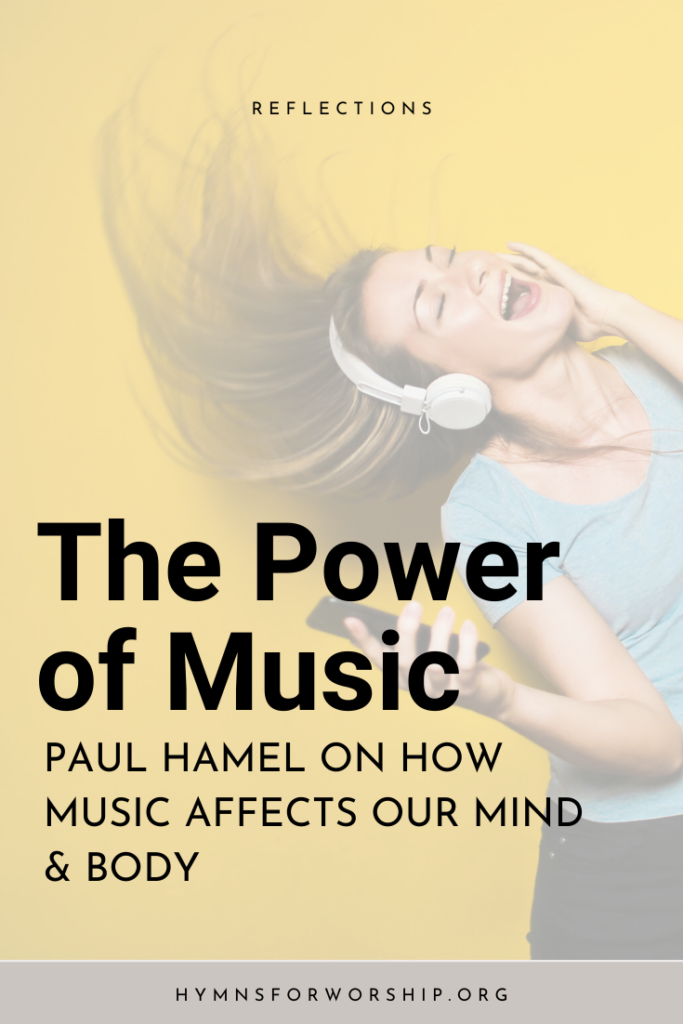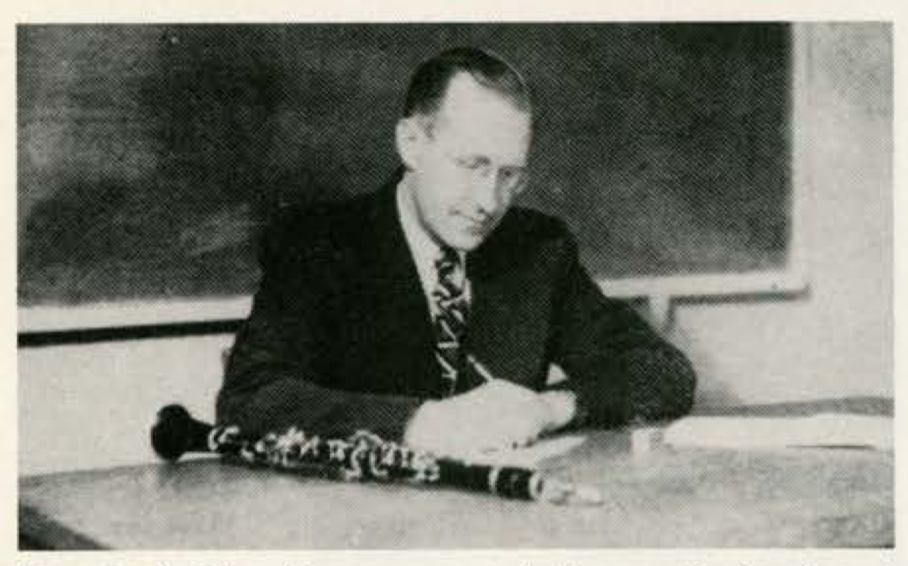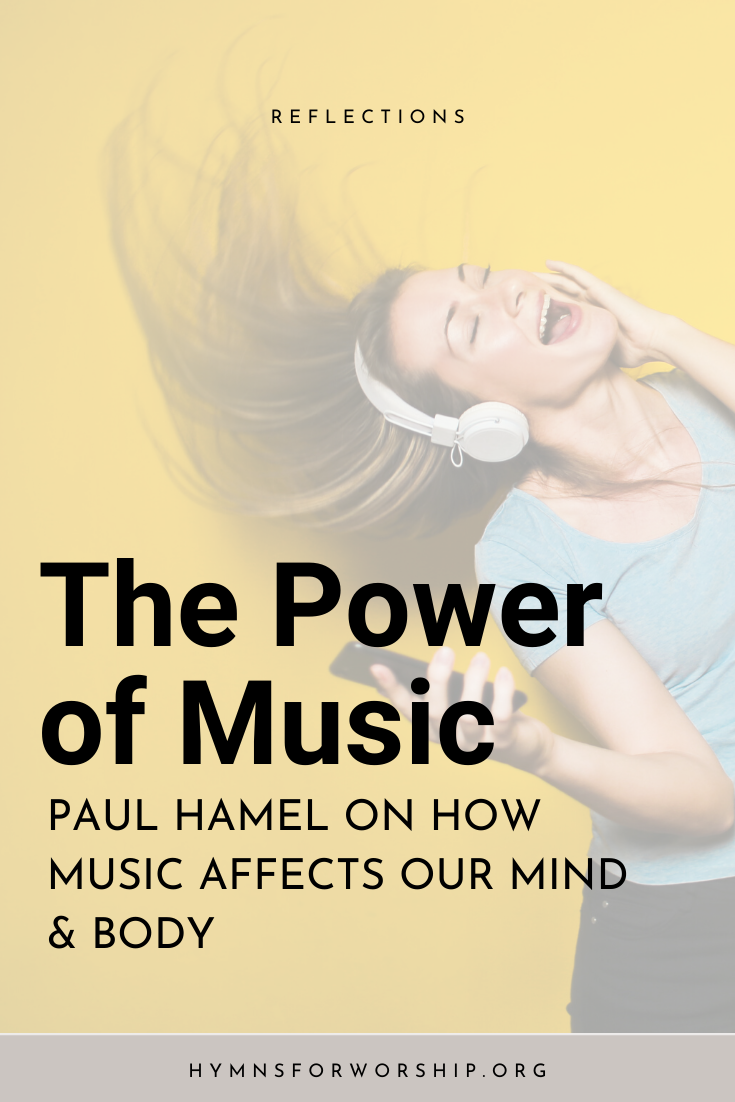A girl comes on stage with a small ukelele, says hello to the five music judges in front of her and tells them the song she’s about to sing. On cue, she belts out a ballad. The camera pans out and the screen shows certain faces from the audience. Some are teary-eyed, some smiling. As the song reaches its climax, the audience stands to their feet and cheers the little girl. What an emotional moment.

What was it that really touched people’s emotions? Was it the blinding lights that dazzled the stage? Was it her personal story? Was it the fact that in spite of her age she was so brave to face these judges and the millions of people watching? Or was it her beautiful voice and the song she appropriately selected? All these aspects may have a contributing factor — but without her singing, the viewers’ emotions would probably not reach such a height.
Indeed, the power of music.
What is it in music that calls for human’s deepest emotions? And since music releases certain kinds of feelings or emotions, and since these feelings affect behavior, is it not important to exercise considerable care in the selection of the music to which we listen?
In the presence of music

These are the questions Paul Hamel strived to answer in his article, “The Power of Music,” published in the journal, Adventists Affirm. He elaborated on the fact that on a very basic level, music influences our feelings and emotions. And by merely hearing it, we are affected. He wrote,


Hamel is one in a select group of Adventist musicians to have a building named for them. He earned this by virtue of a long and distinguished career where for nearly a quarter of a century, he provided crucial leadership at critical moments for not only the music program but also for other aspects of campus life as well. Recognized as a father figure within the circle of Adventist music chairs, admired as a gentleman, and recognized for both his accomplishments and his wisdom, he also authored numerous journal articles and two books: The Christian and His Music and Ellen White and Music.
In the article, he further explains that the body is influenced by music in two ways — through behavior and actions:

He then enumerates that bodily responses may not be too obvious to the person listening to the music. However, science has proven that there are certain physiological changes in respiration, by how blood is distributed in the body, blood sugar levels, pupillary reflexes, brain-wave patterns, and metabolism. He also pointed out that these changes occur similarly to different kinds of people from different kinds of backgrounds and cultures.

Then he listed several ancient sources that proved his point. Among them, he included a quote from a Confucian scholar who wrote, “Music is intended to arouse man to turn back from wickedness and evil. For changing the mores and improving the customs there is nothing better than music.” He also included the philosophies surrounding the Greek doctrine of Ethos regarding music and character, as well as Martin Luther’s warning against the wrong use of music.
Bringing these evidences in a Christian perspective, Hamel then asked many important questions that every Christian should answer:

More importantly, Hamel reiterated:

In a research done by psychologist Lewis Thorpe, he enumerates that there are three general classes of emotions: the mild upbuilding emotions, the strong emergency emotions, and the emotions of sex, including lust. Hamel then explored these categories by giving examples of music that catered to each. He noted that this is precisely the reason why the music of Mozart, Debussy, Stockhausen or Varese are not played in night clubs, taverns, discotheques, houses of prostitution and strip-tease joints.
[embedyt] https://www.youtube.com/watch?v=HRO1i9B4ocA [/embedyt]
[embedyt] https://www.youtube.com/watch?v=khN3e4yH65Q [/embedyt]
The following section of the article explores how music that affects the third class of emotions are also brought into the church. He described in full detail a particular service that happened in a local Pentecostal church. The pounding music sent the congregation jumping and whirling, “…shaking violently as they fell to the floor — with screams of ecstasy.” As the music softened, the physical manifestations moderated, and within a few moments all were back in their pews singing softly. In retrospect of what he experienced in this particular church service, Hamel said:

A similar example can be said of what happened in Muncie, Indiana at a campmeeting held by Adventists in September of 1900. It was a rather significant gathering, with 3,500 people in attendance, as reported by the Muncie Daily Herald.
Elder S.N. Haskell, an evangelist, missionary and editor in the Seventh-day Adventist Church who also became one of the pioneers of Adventism in the South Pacific, was the duly assigned representative from the General Conference to attend the Muncie campmeeting. Haskell reported to Ellen White in a letter that the musical instruments were used to excess and that “everything is drowned but simply the noise of instruments. It is a mixture of truth and error, with much excitement and music.”
[embedyt] https://www.youtube.com/watch?v=J87YdZc8xXw [/embedyt]
Others reports included hysterical manifestations such as falling on the ground, and violent shaking of the entire body.
Ellen White addressed this issue by writing:

Several paragraphs later she added:

As Hamel continued to explore the burgeoning trend among the Seventh-day Adventists, he iterated that in those churches who employed this type of music gave more emphasis on the performance rather than the spiritual message. Other manifestations that gave evidence to following the trend is clapping of hands in rhythm to the strong beat of the music until the entire body is affected.
[embedyt] https://www.youtube.com/watch?v=6ec5xrx-iM8 [/embedyt]
Warning the Adventists of this danger, he wrote:

As he concluded the article, he reminded readers of the text in Amos 5:23 where the Lord rejected music offered to Him. He also challenged serious Christians to:

Couple this article with what Ellen White wrote about the power of music in the books Evangelism, Selected Messages vol. 2, and Messages to Young People.
This article is based on Paul Hamel’s “The Power of Music” published in Adventists Affirm, Fall 1990 volume, pages 26-32.

